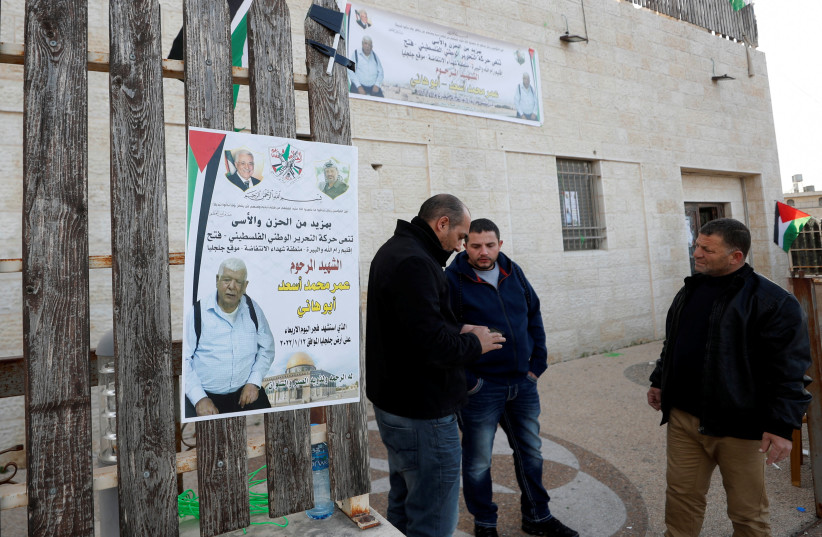The death two weeks ago of 80-year-old Palestinian-American Omar Abdalmajeed As’ad after being detained at a checkpoint by IDF soldiers is a terrible tragedy.
The circumstances surrounding his arrest and the cause of his death need to be investigated thoroughly. The investigation needs to be rigorous and transparent.
Such an investigation would be in order following the death of any detainee an hour after being arrested. But this investigation has taken on even greater urgency because As’ad was a long-time resident of Chicago and Milwaukee. This has given his death a great deal of resonance in the US, making headlines in US papers, triggering demands for clarification from the State Department, and angry condemnations from the usual band of anti-Israel representatives in Congress.
The incident also exposes a real problem for the IDF (and for other armies as well): The actions of low-ranking soldiers can carry significant strategic ramifications.
This concept even has a name – “Strategic Corporal” – an idea introduced by US Marine Corps Gen. Charles Krulak in 1999 to refer to the strategic impact the acts of a Marine corporal, low down in the chain of command, may have. In the IDF it has taken on a largely negative connotation, referring to how the actions of even the simplest soldier could create major strategic problems.

As’ad’s death is a case in point.
The IDF said As’ad was detained at a surprise checkpoint in Jiljilya, near Ramallah, by soldiers of the Kfir Brigade’s Netzah Yehuda Battalion because he was driving in a car that looked suspicious, and they wanted to ensure he was not carrying arms. The soldiers, according to media accounts, said As’ad began shouting and drawing unwanted attention to the checkpoint.
According to leaks from a preliminary investigation, As’ad was then detained for questioning in a building under construction, where he was left – in the cold – for an hour with his hands tied, eyes blindfolded and with a gag over his mouth. The report’s findings will be given to the military advocate-general, who will determine whether actions should be taken against the soldiers involved.
Palestinian officials said As’ad’s body was found with a plastic tie around one wrist. Jiljilya Mayor Fuad Qattum said he most likely suffered a heart attack caused by the stress involved in the incident.
US State Department spokesman Ned Price last week said Washington sought clarifications on the matter from Jerusalem and that the IDF “has indicated there’s an ongoing investigation into the matter.”
As’ad’s death will be used, and already has been used by the usual suspects, to vilify Israel. For instance, Palestinian-American Rep. Rashida Tlaib tweeted last week that Israeli troops “dragged him from the car, beat him, and left him on the ground to die,” even though there was no immediate indication he was beaten.
Rep. Ilhan Omar addressed the incident on Instagram, saying, “Life taken under the cruelty of occupation. When will these victims get accountability?”
Longtime Israel basher Betty McCollum chimed in, as did Marie Newman, a new voice in the progressive anti-Israel camp.
In other words, the issue is, at least in progressive circles in the US, becoming a cause célèbre. There are those with an interest in making it into a major diplomatic incident. “Corporal Strategy” strikes again.
Israel has to be completely open, honest and transparent in investigating the incident and providing Washington with the clarifications requested. Furthermore, if the soldiers involved acted unlawfully and in breach of protocol, they need to be held accountable.
Israel needs to avoid any attempt to whitewash the issue, make excuses, or go on the defensive. It needs to give an honest account of what happened. Why was As’ad stopped? Why was he tied and blindfolded? What were the circumstances of his death?
It also needs to provide context as to the reasons for these types of surprise checkpoints and why the IDF operates inside Palestinian towns such as Jiljilya. For that, too, is part of the story.
Reading some of the tweets and some of the reporting on the incident, one might walk away with the impression that the surprise checkpoints, as well as nightly IDF incursions into Palestinian towns and villages, are there just to torment the Palestinians and make their lives miserable.
What is missing is the security context: that these checkpoints, and the frequent arrest raids in West Bank towns and villages, are necessary to thwart terrorist attacks.
Over the last two decades, terrorist-related fatalities have fallen dramatically, from 457 killed in terrorist attacks in 2002, at the height of the Second Intifada, to three such deaths in 2020.
Numerous factors go into explaining why these numbers are down, but it is not because terrorists have stopped trying. Rather, it is because Israel has become more adept at preventing them. Surprise checkpoints and nighttime raids are among the tools Israel has at its disposal. Were there no terrorism, there would be no need for these checkpoints.
This is a similar argument used to explain the security fence, which is also frequently portrayed abroad as a draconian Israeli measure taken to create hardships for the Palestinians. There is no doubt that it does create hardship, but there is also no doubt that it serves an important role in preventing terrorist attacks.
As’ad’s death is horrible. Sadly, it reflects a tragic reality where surprise checkpoints are a harsh and bitter necessity.
